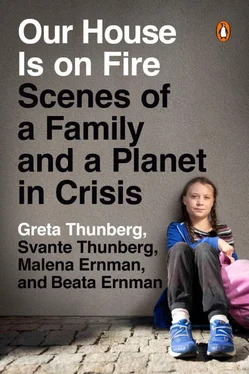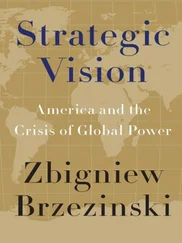Greta Thunberg - Our House Is on Fire - Scenes of a Family and a Planet in Crisis
Здесь есть возможность читать онлайн «Greta Thunberg - Our House Is on Fire - Scenes of a Family and a Planet in Crisis» весь текст электронной книги совершенно бесплатно (целиком полную версию без сокращений). В некоторых случаях можно слушать аудио, скачать через торрент в формате fb2 и присутствует краткое содержание. Город: New York, Год выпуска: 2020, ISBN: 2020, Издательство: Penguin Books, Жанр: Биографии и Мемуары, Публицистика, на английском языке. Описание произведения, (предисловие) а так же отзывы посетителей доступны на портале библиотеки ЛибКат.
- Название:Our House Is on Fire: Scenes of a Family and a Planet in Crisis
- Автор:
- Издательство:Penguin Books
- Жанр:
- Год:2020
- Город:New York
- ISBN:978-0-14313-357-5
- Рейтинг книги:4 / 5. Голосов: 1
-
Избранное:Добавить в избранное
- Отзывы:
-
Ваша оценка:
- 80
- 1
- 2
- 3
- 4
- 5
Our House Is on Fire: Scenes of a Family and a Planet in Crisis: краткое содержание, описание и аннотация
Предлагаем к чтению аннотацию, описание, краткое содержание или предисловие (зависит от того, что написал сам автор книги «Our House Is on Fire: Scenes of a Family and a Planet in Crisis»). Если вы не нашли необходимую информацию о книге — напишите в комментариях, мы постараемся отыскать её.
Our House Is on Fire: Scenes of a Family and a Planet in Crisis — читать онлайн бесплатно полную книгу (весь текст) целиком
Ниже представлен текст книги, разбитый по страницам. Система сохранения места последней прочитанной страницы, позволяет с удобством читать онлайн бесплатно книгу «Our House Is on Fire: Scenes of a Family and a Planet in Crisis», без необходимости каждый раз заново искать на чём Вы остановились. Поставьте закладку, и сможете в любой момент перейти на страницу, на которой закончили чтение.
Интервал:
Закладка:
As I said, we sang, and I loved to sing. I sang all the time.
I sang everything and anything – the harder the piece, the more fun it was.
Much later, when I chose to become an opera singer, it was probably for the simple fact that I love a challenge. After all, nothing was harder or more fun than singing opera.
SCENE 3.
Cultural Workers
Since I was six years old, I’ve been singing on stage for audiences. Church choirs, vocal groups, jazz bands, musicals, opera. My love for song is boundless – I would rather not stick to any one genre or be put in any fach. My work sprawls in every direction and across all boundaries. I will sing anything as long as the music is good.
In the entertainment industry it’s often said that the easier you are to define as an artist the more cookbooks you’ll get to write – and my cookbooks presumably shine brighter in their absence than most.
But the past fifteen years, in my view anyway, have a clear through-line, in that I’ve been trying to combine the height of artistry with a broad, popular repertoire. I’ve tried to simplify the difficult, take high culture down a notch, widen what is narrow. And vice versa.
I’ve gone my own way. Against the current and most often alone. Except when Svante was involved, obviously.
What was at first driven by instinct and intuition became a method over the years – akin to a responsibility, a conviction that if you have the ability to push the boundaries of your profession, you are also obliged to try.
Svante and I are among the very few who were given that opportunity.
And we tried.
We are ‘cultural workers’ – a term widely used in Sweden for anyone working within the arts. We are trained in opera, music and theatre, with half a career of freelance and institutional work behind us. We do what all cultural workers are ultimately programmed to do. We strive and toil to secure our future and reach our eternal goal: finding that new audience.
We come from quite different backgrounds, but have shared the same goal, right from the start.
Different, but similar.
When I was pregnant with our first child, Greta, and working in Germany, Svante was working at three different theatres in Sweden: Östgötateatern, Riksteatern and Orionteatern. Simultaneously. I had several years of binding contracts ahead of me at various opera houses all over Europe. With a thousand kilometres between us, we talked over the phone about how we could get our new reality to work.
‘You’re one of the best in the world at what you do,’ Svante said. ‘I’ve read that in at least ten different newspapers, and as for me, it’s more like I’m a bass player in the Swedish theatre. I can very easily be replaced. Not to mention the fact you earn so damned much more than me.’
‘Than I do .’
‘You earn so damned much more than I do .’
I protested a little half-heartedly but the choice was made, and after Svante’s last performance he flew down to join me in Berlin.
The next day Svante’s phone rang. He took the call standing on a balcony overlooking Friedrichstrasse. It was late May and the summer heat was already oppressive. We hadn’t even been together for six months.
‘So bloody typical,’ he said, laughing, after he’d hung up a few minutes later.
‘Who was that?’
‘It was Erik Haag and another guy. They were at the Orion and saw the performance last week.’
Svante had acted with Helena af Sandeberg in a play by Irvine Welsh, author of Trainspotting ; everyone was doing drugs and swaddling corpses in shrink wrap.
‘Fuck me!’ was a line that Helena had screamed at Svante several evenings a week since the play opened.
Helena was considered to be the best-looking actress in all of Sweden and I was terribly jealous about the whole thing.
‘They’re doing a comedy programme for one of the big networks and think I seem like a funny guy, so they were wondering if I wanted to be on it. This is exactly the kind of call I’ve been waiting for…’
‘What did you say? You have to do it!’ I fixed my eyes on him.
‘I told them I’m with my very pregnant girlfriend and that she is working abroad.’ He fixed his eyes on me.
‘You turned it down?’
‘Yes. It’s the only way. We’re doing this together, otherwise it’ll never work.’
And so it was.
A few weeks later we were sitting at the premiere party for the Don Giovanni production I was singing in at the Berlin Staatsoper and Svante explained his current professional status to my colleagues, Maestro Barenboim and Cecilia Bartoli.
‘So now I’m a housewife.’
Then we kept on doing that for twelve years. It was arduous and hard but also great fun. We spent two months in each city and then we moved on to the next one. Berlin, Paris, Vienna, Amsterdam, Barcelona. Round and round.
We spent the summers in Glyndebourne, Salzburg or Aix en Provence. As you do when you’re good at singing opera and other classical music.
I rehearsed twenty to thirty hours a week and the rest of the time we spent together. Free. No relatives, except Grandmother Mona, who sometimes came to stay. No friends. No dinners. No parties. Just us.
Beata was born three years after Greta and we bought a Volvo V70 so we’d have room for doll’s houses, teddy bears and tricycles. We carried on. Round and round and round. Those were fantastic years. In wintertime we’d sit in bright, beautiful fin-de-siècle apartments, playing with the girls on the floor, and when spring came we’d stroll out through green, leafy parks together.
Our everyday life was like no one else’s. Our everyday life was absolutely marvellous.
SCENE 4.
Unique Opportunities
‘Being involved in Melodifestivalen [the annual song competition in Sweden ahead of the Eurovision Song Contest] is a little like having a baby. You can tell others about it, you can describe it in detail. But only those who’ve been there can know how it feels.’
Anders Hansson is a music producer and we’re about to start working on my next album. At the moment we’re dragging our suitcases across Stortorget in Malmö on our way to the Stockholm train and Anders is laughing as he explains the situation to Svante and me.
It’s the morning after my schlager debut. A big picture of me, Petra Mede and Sarah Dawn Finer adorns the front page of Aftonbladet . The caption reads: ‘Malmö Arena at 9.23 p.m.’ In the picture I am radiating total and utter shock.
Melodifestivalen is the biggest annual TV show in all the Nordic countries. It lasts for six weeks and can only be described as a happy mix between the X Factor and the American Super Bowl. Almost half of the population of Sweden watch the final show, and the media surrounding it is second to none. If you enter, you must be prepared for a bumpy ride… especially if you do it as an opera singer, like me. But I decided, if you enter Melodifestivalen, you enter to win, and to win well. In other words, the odds should be on you coming in last. You should be alongside all the major performers in the finale – and then you should win by the smallest conceivable margin, preferably decided by the people’s vote. So that’s exactly what I did. It was the biggest upset in the history of the whole competition.
After that, you’d think it would just be a matter of using our new platform and getting to work. That ‘new audience’ had indeed been found and the groundwork could not have been laid better.
Melodifestivalen gave us a unique chance – an opportunity that would probably never come again. The audiences poured in. The Minister of Culture talked about a ‘Malena effect’.
Читать дальшеИнтервал:
Закладка:
Похожие книги на «Our House Is on Fire: Scenes of a Family and a Planet in Crisis»
Представляем Вашему вниманию похожие книги на «Our House Is on Fire: Scenes of a Family and a Planet in Crisis» списком для выбора. Мы отобрали схожую по названию и смыслу литературу в надежде предоставить читателям больше вариантов отыскать новые, интересные, ещё непрочитанные произведения.
Обсуждение, отзывы о книге «Our House Is on Fire: Scenes of a Family and a Planet in Crisis» и просто собственные мнения читателей. Оставьте ваши комментарии, напишите, что Вы думаете о произведении, его смысле или главных героях. Укажите что конкретно понравилось, а что нет, и почему Вы так считаете.






![Корнелл Вулрич - Murder at Mother’s Knee [= Something That Happened in Our House]](/books/398097/kornell-vulrich-murder-at-mother-s-knee-somethin-thumb.webp)





